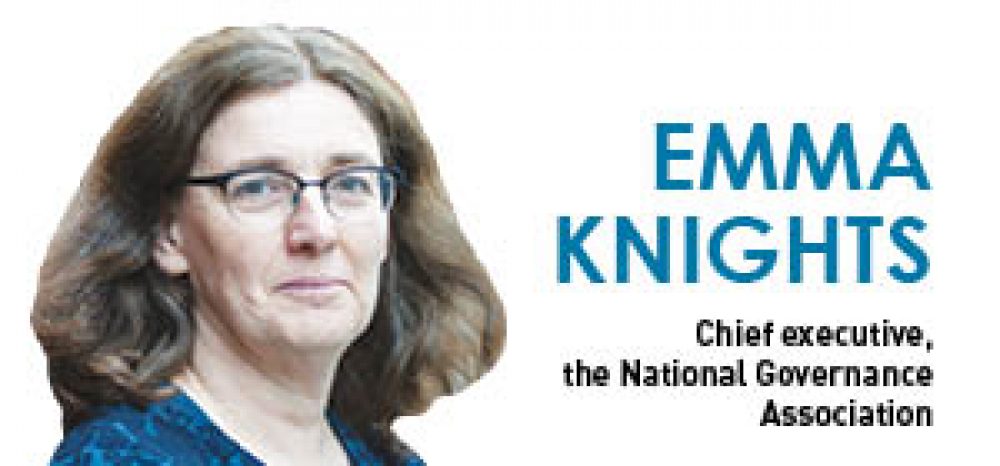Emma Knights explores the latest thinking in school governance
Like a number of binary debates in English education, the discussion on skills and stakeholders that school governance has been bogged down in for the past five years is sterile, limited and sometimes even immature.
Can we please just agree that we all want skilled, competent governing boards, and then consider how we can best achieve them?
A scoping report entitled ‘Who governs our schools: Trends, tensions & opportunities’ published this month by the Royal Society for the Arts should help move the discussion on.
As the report says, “building on locally contextualised knowledge… is not a block on good governance; it is often the route to it”. In other words, people recruited as stakeholders (parents, teachers or others from the local community) can of course bring skills and knowledge to the table. Many headteachers recognise the added value that links with the community bring. Moreover, given recruiting and retaining volunteers can be difficult, we need every route to interested, committed people.
How we govern our schools should be an education policy priority, not an afterthought
But effectiveness is not even the whole conversation; ethical guardianship and legitimacy are also important. Who or what gives us the right to govern?
Listening to a broad range of parents, pupils and staff is fundamental to good governance, whoever is on the board, and we need to do it better. The National Governance Association has suggested to Justine Greening that this should be recognised as a fourth core function of governing bodies in the Department for Education’s governance handbook.
Becoming a school governor is one of the most popular means of formal volunteering in the UK and this should be celebrated. Any move that undermines either this purpose or its participative spirit should be viewed with caution.
The report recommends a pilot for potential remuneration which seems slightly at odds with this spirit. Pay for those governing schools has been debated by NGA’s membership for five years, and support for remuneration amongst serving volunteers has stalled at 27 per cent. Although there is paid governance in many other sectors, there is no evidence to show it improves practice. Attendance does seem to improve, but impact is more difficult to decipher.
We do need to improve the diversity of boards, and to recruit more people under 40 and from ethnic minorities. The RSA recommends that the same standards of practice should be used when recruiting governors as for the appointment of paid staff. There is NGA guidance on exactly this, and though the number of governing boards formally interviewing candidates is increasing, it’s not happening fast enough.
Boards struggling to find candidates to interview should try Inspiring Governance, a free online service that connects schools and trusts with skilled, interested volunteers.
The theme on improving induction and training for school governors is rightly widened by arguing that teachers and particularly school leaders need to have a better understanding of governance. Where governance is weak, it is unlikely to improve if senior leaders do not know what “good” looks like, or simply do not accept its importance, viewing it as a distraction from the task of improving teaching and learning, rather than central to sustained school improvement. At the heart of good governance lies trust and respectful relationships between the non-executives and the executives.
As the report’s author wisely observes, “the governing board, in a sense, transcends the professional leadership of the school or group of schools because of its institutional permanence and overarching responsibilities. While individual governors and heads come and go, the institution of the governing board remains a permanent feature, appointing successive heads and carrying the organisation’s ethos and tradition over time.”
The report also explores the effect of changing school structures, which I wrote about in Schools Week last year: moving decisions “upstream” in multi-academy trusts to boards of trustees and the line management of heads from governing bodies to a paid executive.
Unsurprisingly I am fully behind the conclusion – “how we govern our schools should be an education policy priority, not an afterthought”. The more people saying that, the better.
Emma Knights is chief executive of the National Governance Association







Your thoughts